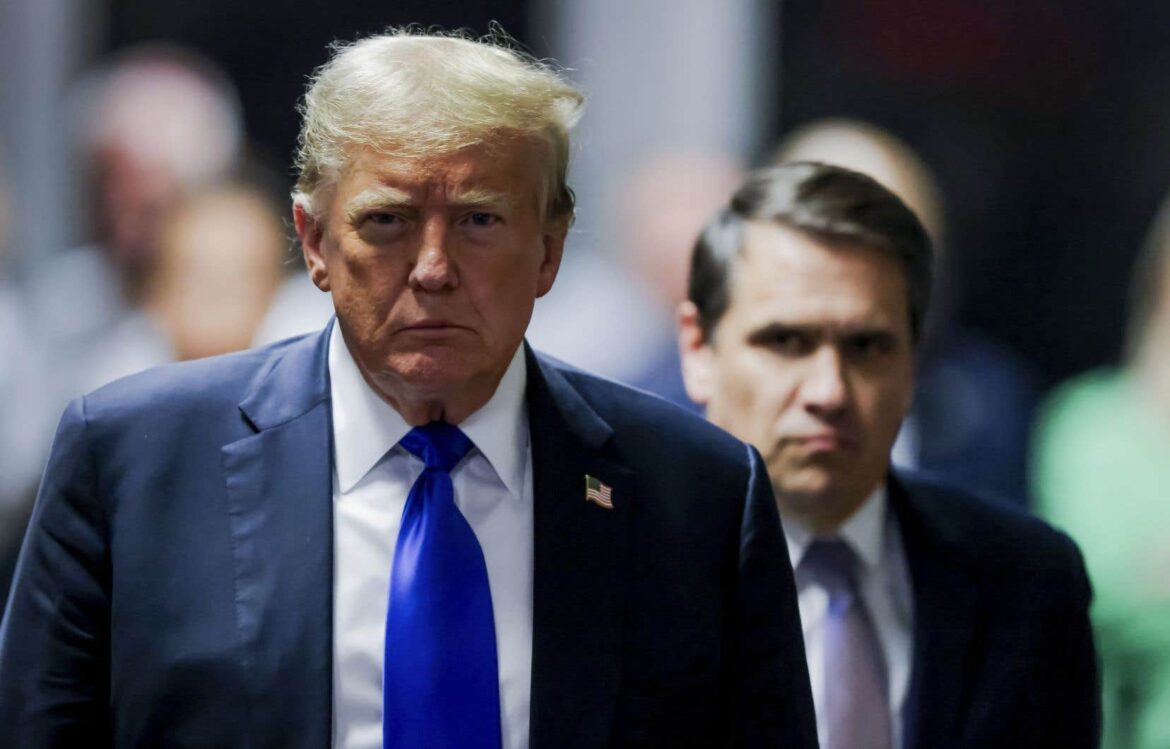Sentencing in Donald Trump’s criminal trial for concealed payments to a pornographic actress, scheduled in nine days, has been postponed until September 18, the first effect of the Supreme Court’s heavy-handed decision on the former US president’s immunity.
“The sentencing date of July 11 is (…) canceled,” and “adjourned to September 18 if still necessary,” approximately six weeks before the date of the American presidential election, November 5, 2024, announced New York magistrate Juan Merchan in a decision notified to the parties and made public on Tuesday.
This decision considerably lightens the judicial calendar of the candidate for the White House in the immediate future. Because the sentence, which can be up to 4 years in prison, was initially to be pronounced four days before the Republican convention in Milwaukee (July 15-18), during which Donald Trump is to be officially invested as presidential candidate.
Judge Merchan, who presided over Donald Trump’s trial in April and May, the first criminal trial of a former US president, made his decision hours after the Manhattan prosecutor’s office said it was open to a postponement.
On Monday, in the wake of the Supreme Court’s decision, Donald Trump’s lawyers wrote to the judge to ask for the annulment of the historic verdict delivered on May 30 by a unanimous jury: the former president of the United States had been found guilty of 34 crimes of falsifying accounting records to hide from voters the payment of $130,000 to porn star Stormy Daniels, at the very end of the 2016 presidential campaign.
On his social network Truth Social, the Republican billionaire immediately reacted by assuring in capital letters that this is a “total exoneration”, while the judge has absolutely not ruled on the substance of the request.
“Presumption of immunity”
The defense had already invoked its immunity in vain to derail part of the case. But for the lawyers, the decision handed down the day before by the conservative-majority Supreme Court, according to which the President of the United States “is entitled to at least a presumption of immunity for his official acts,” reshuffles the cards.
“During the trial and its closing arguments, the prosecution placed a highly prejudicial emphasis on evidence derived from official acts, such as testimony about events that occurred in the Oval Office … social media posts (on Donald Trump’s accounts as president) and records of phone calls involving Donald Trump while he was in office in 2017,” they argue in a preparatory document for their appeal, made public Tuesday.
The Manhattan prosecutor’s office said the arguments “are unfounded” but did not oppose consideration of the request.
Donald Trump was only a candidate in the 2016 presidential election when Stormy Daniels, whose real name is Stephanie Clifford, received, at the very end of the campaign, $130,000 to keep quiet about a sexual relationship she claims to have had, in 2006, with the Republican businessman, which he denies.
The money had been paid by the candidate’s former confidant, Michael Cohen. But it is from the reimbursement granted by Donald Trump to his loyal lieutenant, in 2017, while he was in the White House, that the prosecutions for falsified accounting arise.
“Even in this case, which is the furthest away from his official responsibilities that one can imagine, some of the acts incriminated took place after he took office,” Asha Rangappa, a lecturer at Yale University and former FBI agent, told AFP.
“Instinctively we say that these cannot be official acts, but the (Supreme) Court has given so little guidance (…) that it is difficult to say what will be taken into account and what will not,” she warns.
If Donald Trump, 78, faces prison, the judge can also impose an alternative sentence such as a suspended sentence. He will be able to appeal, but in any case it would be an unprecedented scenario for a candidate for the White House.



